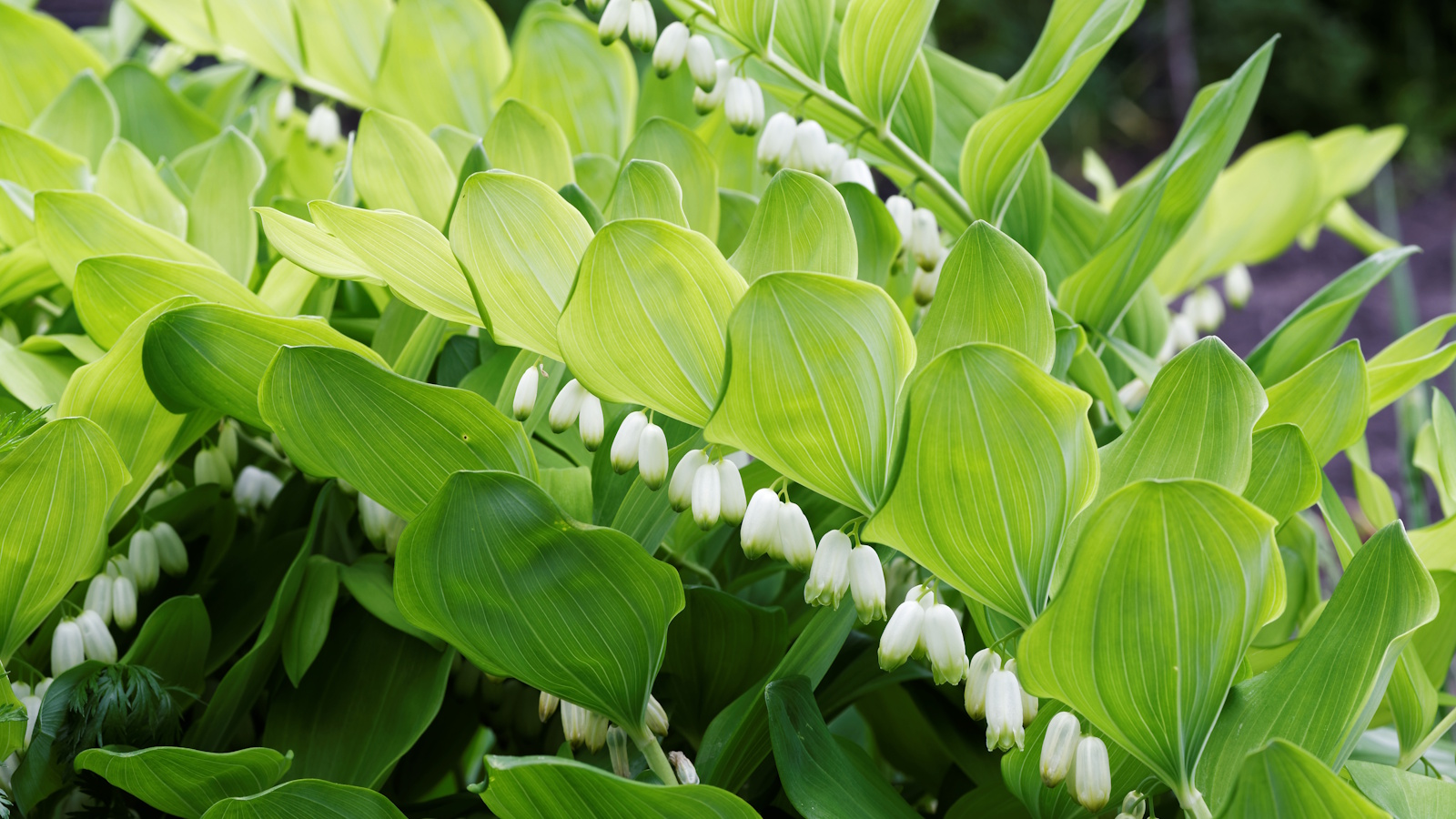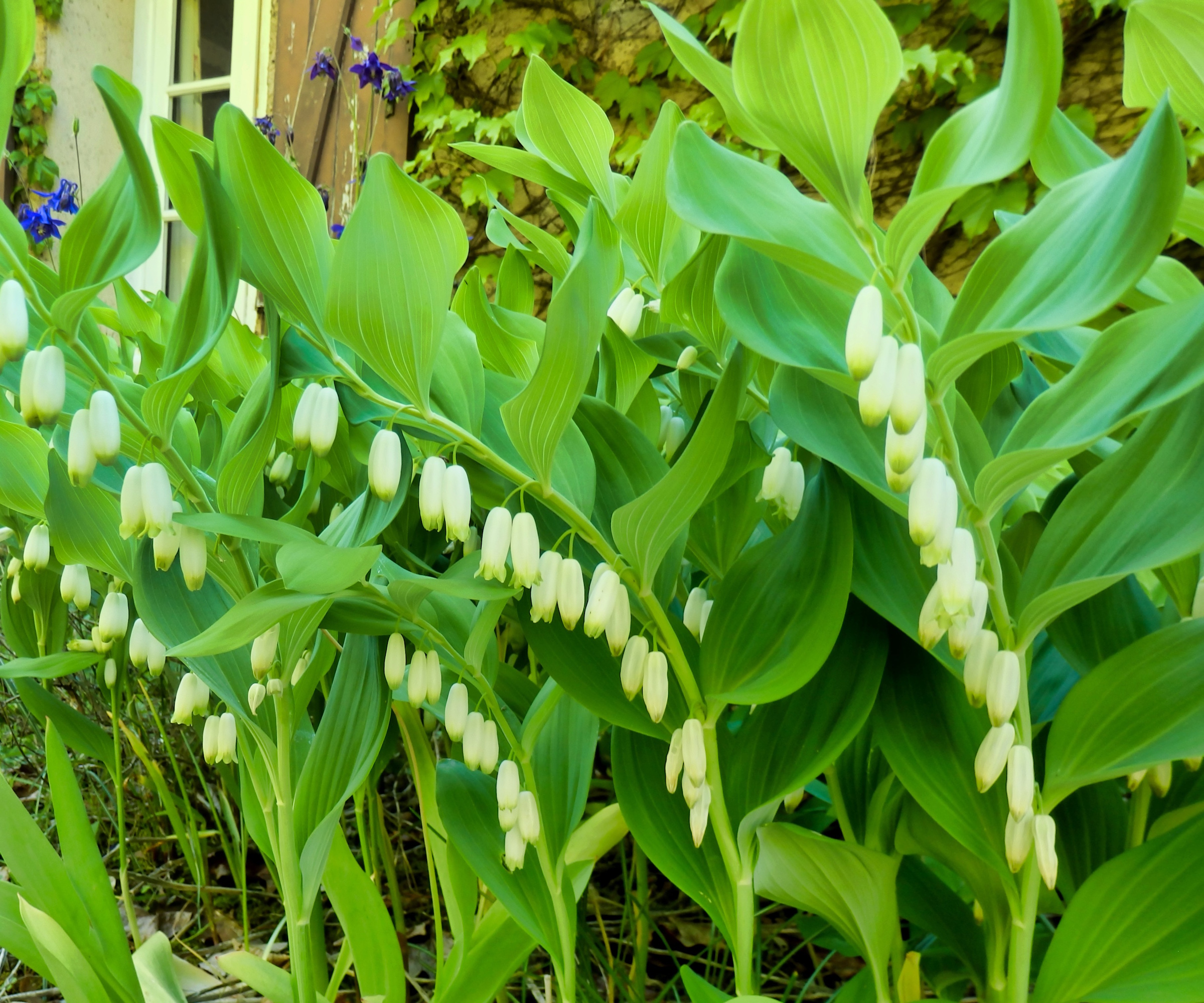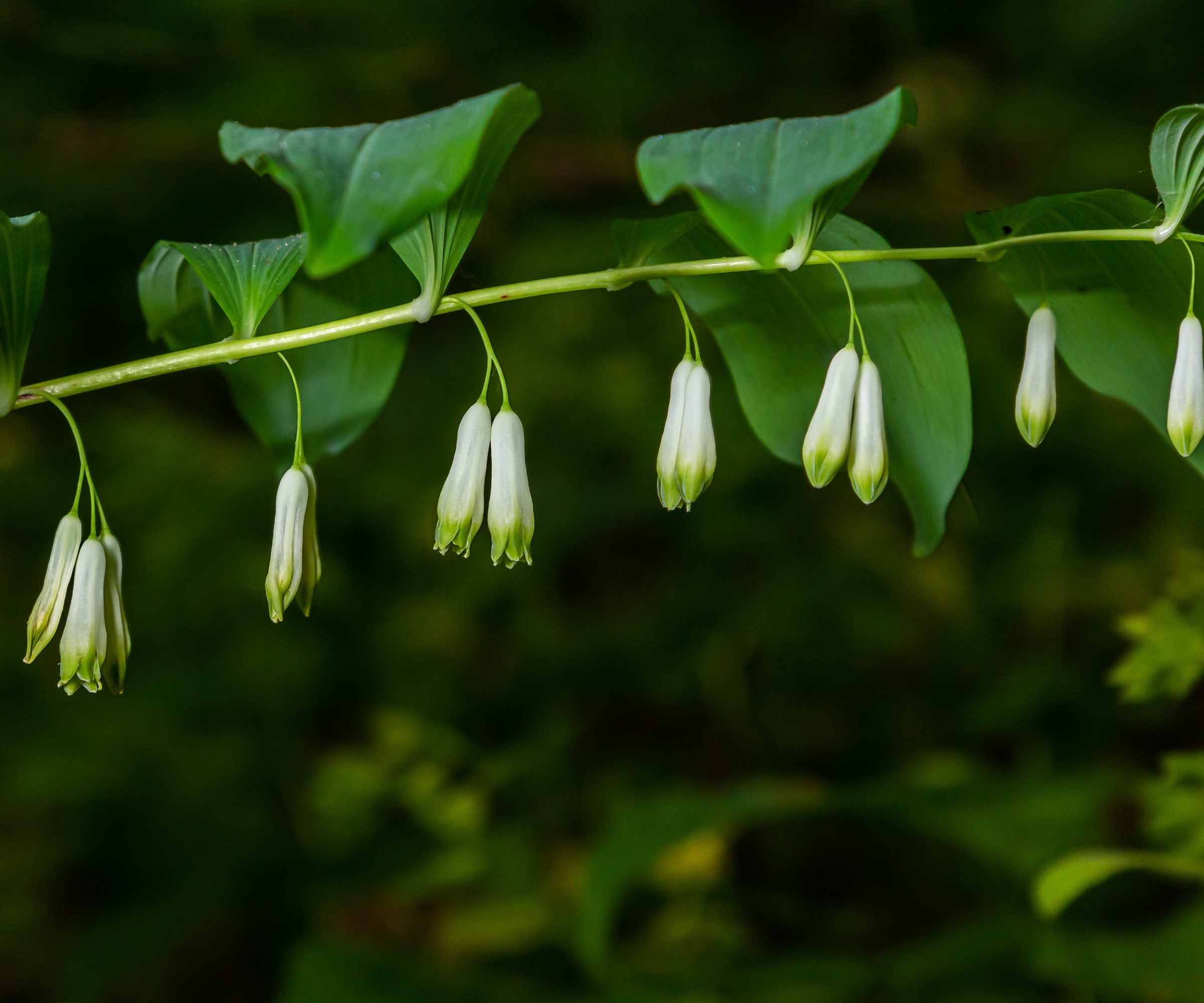
Solomon’s seal, or Polygonatum, is a perennial ground cover with attractive, arching stems and hanging white blooms. These plants look best in a woodland setting, thriving in part-shade where their pale blooms contrast brilliantly against a lush green backdrop.
Lily of the valley and Solomon's seal have a similar appearance, although the latter displays a far less vigorous growing habit. Lily of the valley tends to become invasive under certain conditions, so opting to grow Solomon's seal is a good choice in cooler, northern yards.
So, if you are looking for ground cover plants for shade this year, why not learn how to grow Solomon's seal? I have grown this species when working as a professional gardener for many years in the UK, and while the pendulous flowers are much valued, I find the dark summer berries an unusual addition to any space. Here, one master gardener from Vermont reveals the best approach to growing this unique plant.

How to grow Solomon's seal
Solomon's seal is a herbaceous shade plant that provides excellent seasonal interest. In spring, lush green oval leaves and white blooms emerge, before going on to produce colorful berries in summer and fall. Fortunately, learning how to grow Solomon's seal is not complicated, and our guide has all the information you need.
Growing advice for Solomon's seal

There are over 60 species of Polygonatum or Solomon's seal, most of which are native to Asia with only a small number found growing across Europe. Most of these species can be considered cold hardy plants, growing just fine down to US hardiness zone 3 and tolerating chilly winter weather.
As mentioned above, Solomon’s seal is a close relative to lily of the valley, both perennials that are part of the asparagus plant family, Asparagaceae. 'Both of these have similar arching stems and bell-shaped flowers with a sweet fragrance,' says Tabar Gifford, plant expert and American Meadows master gardener.
'Solomon's seal makes for a great addition to any wild garden, providing lush greenery, lovely blooms and striking berries in the flower garden. The common name comes from the fact that the root of this species bears a mark that some think resembles the Star of David or the seal of King Solomon,' Tabar continues.
Care guide for Solomon's seal

Soil: 'Solomon's seal thrives in rich, moist but well-draining soil,' Tabar says. 'Prepare the planting site with compost to enrich the soil,' reapplying mulch or organic compost, available from Amazon, annually, 'which will help to retain moisture and protect plants in colder regions.' As Tabar says, rich soils are best, and you want to aim for a neutral to slightly acidic pH of 5.0 to 7.0. If you are worried about your soil being too alkaline, consider using an organic soil acidifier, available from Amazon.
Light: 'These are part-shade or full-shade perennials,' Tabar says, so you want to aim for a darker spot in the yard. While you can grow Solomon's seal in sunny borders in northern zones, such as US hardiness zone 4, this would not be a good idea if you reside in a mild, warm region, as direct sun can scorch the leaves.
Watering: Solomon's seal plants do better in moist, slightly damp soil, so it is best to water them during warm periods. I would also suggest watering recently planted perennials during the first three months while they settle in your yard.
Fertilizing: 'Feed Solomon's seal with a balanced, slow-release fertilizer in spring to encourage healthy growth and blooms,' Tabar says. Apply something like this organic fertilizer, available from Walmart, during April and May, but stop feeding by summer.
Pruning: As a deciduous plant, the foliage will change color and drop during the fall and winter months. I recommend leaving the foliage and stems until late winter, snipping down to the base before the new growth emerges. This should be done by February at the latest.
Toxicity: Many species of Solomon's seal have poisonous and toxic berries, so it is best to keep this plant out of reach of small children and pets. While some species of Polygonatum have been used for traditional herbal medicine, this is not advisable unless you are trained in apothecary and know exactly what you are doing.
Try growing Solomon's seal from seed for beautiful plants and striking white blooms. Each seed packet contains approximately 20 seeds.
FAQs
How do I propagate Solomon's seal?
The easiest way to propagate Solomon's seal is by learning how to divide plants. This should be done in spring as the temperatures begin to rise. Carefully lift a clump and use a sharp spade or pruning saw to cut the rhizomes into smaller sections. Ensure that each section has one bud and an attached root, planting immediately into the ground elsewhere in your yard.
Are there any pests to be aware of?
One pest to know is the Solomon's seal sawfly. Young caterpillar-like larvae are a common sight during summer, particularly in late June and July, with white to gray bodies easily spotted. They can munch through foliage at an alarming rate during summer, and while this can look unattractive, it does not tend to kill the plant. Instead of using pesticides, encourage natural predators in your yard by learning how to attract birds who will snack on the larvae.
Can I grow Solomon's seal in a pot?
Yes, you can grow this perennial in a pot, but remember it needs moist soil to thrive, which can be challenging in free-draining pots. I suggest growing Solomon's seal in containers only for a season or two, before planting out in a shady border where it will be much happier.
If you need any more encouragement, the spring blooms are popular plants for pollinators, proving to be a hit with birds, bees and butterflies that are early to arrive to your plot. So, if you are keen to learn how to attract hummingbirds or how to attract butterflies to your yard, Solomon's seal might just be the plant you need to grow.







